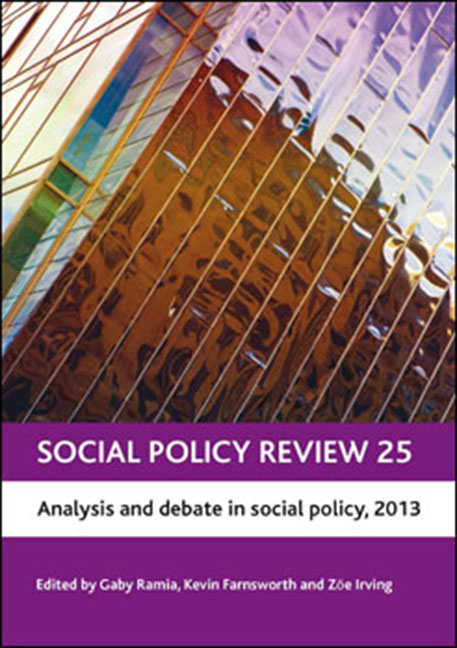Book contents
one - Introducing Universal Credit
Published online by Cambridge University Press: 03 February 2022
Summary
Introduction
Universal Credit is an ambitious reform intended to unify means-tested benefits for people of working age. The idea of simplifying and unifying benefits attracted strong support at the outset, but growing doubts about the practical viability and the detailed operation of the scheme have raised questions about what its impact will be. There is a risk in the short term that the system will crash, but in the longer term, defects in concept and design may prove just as important.
There are times when social policy analysts have little choice but to get down to the detail, and the discussion of social security needs that rather more than some other parts of the field. Broad-brush categories like ‘dependency’ or ‘inequality’ rapidly disintegrate when the circumstances that are being described run to millions of people in hugely varied circumstances. Fashionable categorisations like ‘social risk management’ (World Bank, 2001, 2012) or Esping-Andersen's (1990) ‘worlds of welfare capitalism’ do not help very much when they are exposed to an incoherent and inconsistent reality (see Mabbett and Bolderson, 1999; Castles, 2009). In the same way, and for the same reasons, policy initiatives that begin with a grand, overarching vision tend not to sit well with the complex circumstances that benefits have to deal with. Over the years, many writers have advocated broad-brush, universal schemes – among them, negative income tax (Friedman, 1962), schemes that combine tax and benefits (Dilnot et al, 1984), and basic income (Van Parijs, 1992). These schemes have important limitations. The first is that any benefit intended to make provision at similar costs to existing schemes can only make some people in need better off by making some other people in need worse off. The Conservative Tax Credit Scheme of the 1970s (Cmnd 5116, 1972) foundered because it did not protect the position of women; proposals for a unified disability benefit in Ireland (Government of Ireland, 1996) failed to attract support because of lack of agreement between different constituencies; recent proposals for a Citizens Pension have hit the rock of reduced entitlements for higher earners (Reade, 2012).
- Type
- Chapter
- Information
- Social Policy Review 25Analysis and Debate in Social Policy, 2013, pp. 3 - 22Publisher: Bristol University PressPrint publication year: 2013



